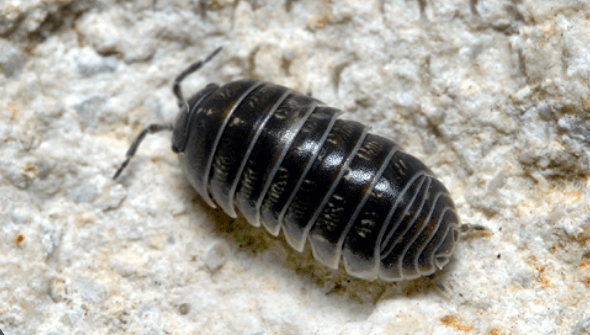Isopods in the Home and Garden: Benefits, Care, and Species Guide

Isopods, often overlooked in the realm of home and garden ecosystems, play a pivotal role in maintaining environmental health and promoting biodiversity. These small crustaceans, commonly associated with the damp corners of gardens or the aquatic environments of ponds, are not just scavengers; they are invaluable decomposers that contribute to nutrient cycling within the soil. Their presence can enhance soil structure, improve moisture retention, and support the thriving of beneficial microorganisms. This article aims to shed light on the various species of isopods that can be found both indoors and outdoors, highlighting their benefits to home and garden environments. Additionally, we will delve into practical care tips to create habitats that foster their growth, and explore the unique characteristics of different isopod species that can be beneficial or decorative in specific settings. By understanding and appreciating the role of isopods, enthusiasts and gardeners alike can cultivate healthier ecosystems that support not only plant life but also the intricate web of organisms that coexist within them. Whether you are a seasoned gardener or a curious homeowner, this guide will equip you with the knowledge to effectively integrate isopods into your living spaces.
Isopods improve soil health and fertility by breaking down organic matter efficiently.
Isopods play a crucial role in enhancing soil health and fertility through their efficient decomposition of organic matter. By feeding on decaying plant material, leaf litter, and other organic debris, these organisms facilitate the breakdown of complex substances into simpler compounds. This process not only accelerates nutrient cycling but also enriches the soil with essential nutrients that are vital for plant growth. The contribution of isopods to the soil ecosystem helps create a more balanced and productive environment, fostering increased microbial activity that further supports plant health.
Additionally, isopods help improve soil structure by creating channels and aeration through their burrowing activities. This enhances water infiltration and root penetration, promoting better access to nutrients and moisture for plants. As they break down organic material, they also produce castings that are rich in nutrients and beneficial microorganisms, further enriching the soil. The presence of isopods in garden ecosystems is thus indicative of a thriving, healthy environment, as their activities contribute significantly to maintaining soil fertility and resilience.
See also: How to Get the Best MM2 Knives: A Guide to Top-Ranked and Rare Options
Regular care ensures isopods thrive, enhancing your garden’s ecosystem and biodiversity.
Maintaining a regular care routine for isopods is essential to ensure their optimal health and activity within the garden ecosystem. Providing a suitable habitat that mimics their natural environment, including adequate moisture, organic materials, and shelter, allows these organisms to flourish. When isopods thrive, they contribute significantly to the overall biodiversity of the garden, as their presence supports various other organisms, including beneficial bacteria and fungi. This interdependence fosters a resilient ecosystem capable of withstanding environmental stressors and pest pressures.
Moreover, an increase in isopod populations can lead to enhanced soil aeration and structure, creating a more hospitable environment for plant roots and other soil-dwelling organisms. Regular monitoring of their habitat conditions, along with the replenishment of organic matter, will not only sustain the isopod population but also amplify their positive impacts on soil health and fertility. By investing in the care of these small yet mighty creatures, gardeners actively promote a thriving ecosystem that supports plant vitality and overall garden resilience.
Diverse species offer unique benefits, from pest control to nutrient recycling in home gardens.
The integration of diverse species within home gardens can lead to a multitude of ecological benefits, particularly with regard to pest control and nutrient recycling. Various organisms play specialized roles in managing pest populations, often preying on harmful insects or competing for resources, which helps maintain a natural balance and reduces the reliance on chemical pesticides. Additionally, specific species contribute to the breakdown of organic matter, facilitating the recycling of nutrients back into the soil. This process not only enriches the soil but also enhances its fertility, promoting healthier plant growth and resilience against diseases.
Isopods, in particular, exemplify the benefits of biodiversity in home gardens. As detritivores, they consume decomposing plant material, thereby accelerating the decomposition process and enriching the soil with essential nutrients. Their activity promotes a thriving microbial community, which further aids in nutrient availability for plants. By fostering a diverse range of species, gardeners can create a more sustainable and productive environment, ultimately leading to a more flourishing ecosystem.
In conclusion, isopods can be a valuable addition to both home and garden ecosystems, offering numerous benefits such as soil aeration, organic waste decomposition, and pest control. Their diverse species exhibit fascinating behaviors and adaptations, making them intriguing subjects for both hobbyists and researchers alike. By understanding their care requirements and habitat preferences, enthusiasts can cultivate a thriving environment for these remarkable crustaceans. Whether you are looking to enhance your garden’s health or simply explore the wonders of biodiversity, incorporating isopods into your space can yield rewarding results. Embracing these small yet impactful creatures can contribute to a more balanced and sustainable ecosystem right in your backyard.
